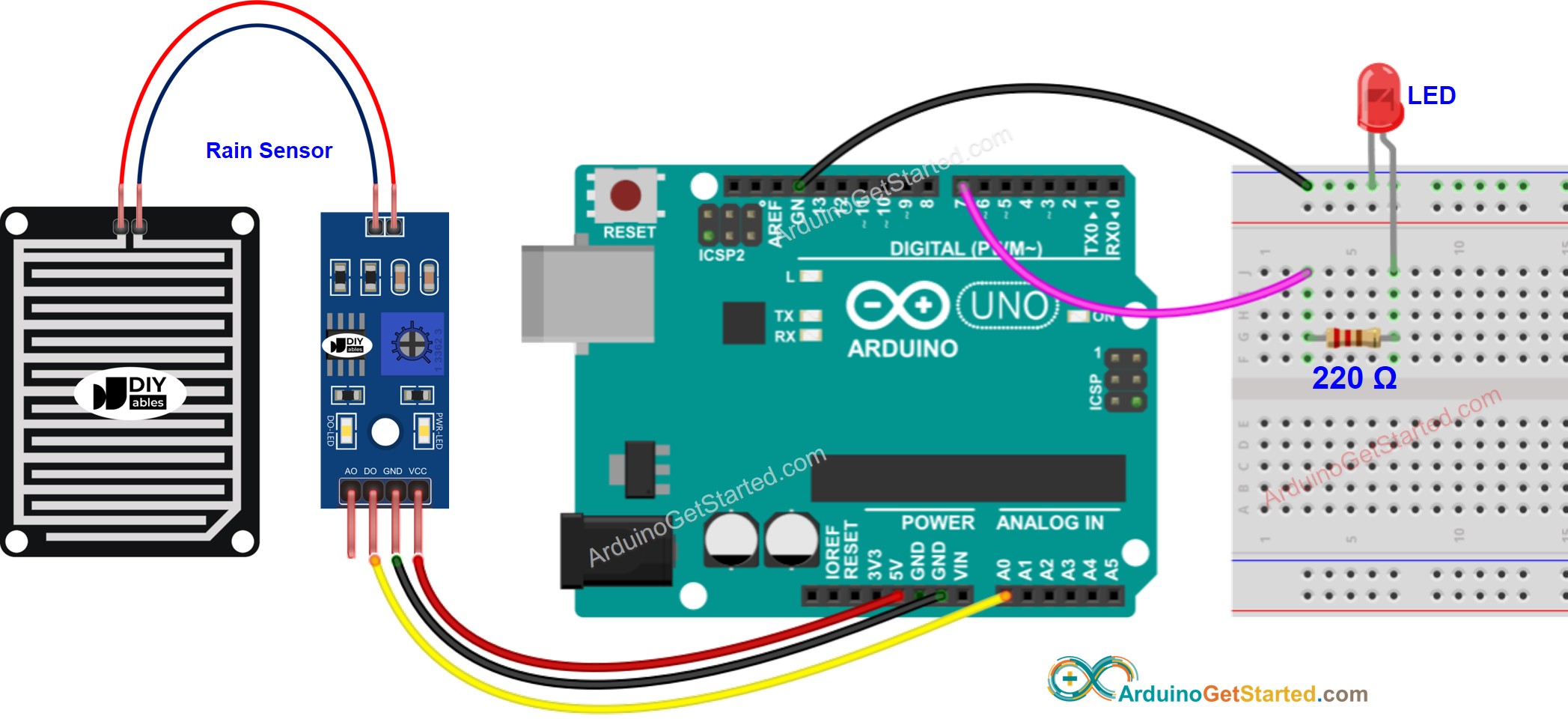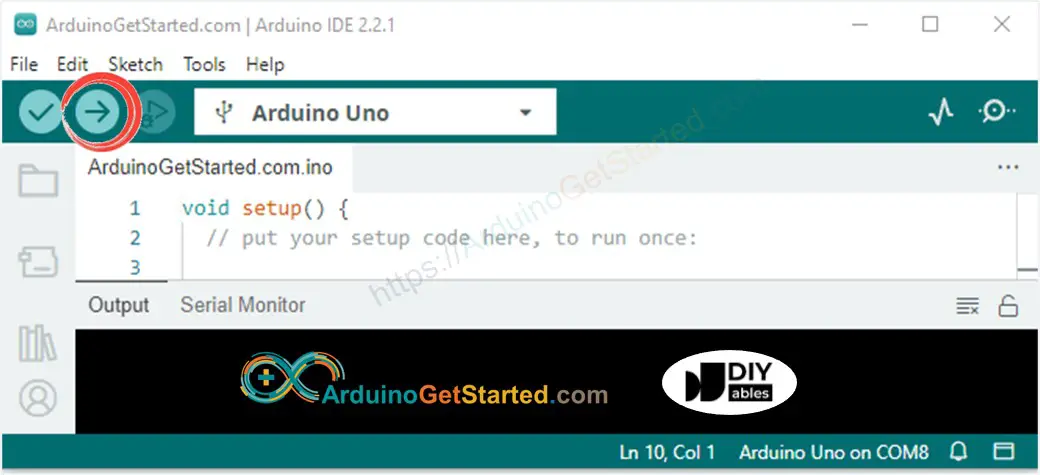Arduino - Rain Sensor - LED
We are going to learn how to:
- If the rain is detected, turn LED on
- If the rain is not detected, turn LED off
Hardware Required
Or you can buy the following kits:
| 1 | × | DIYables STEM V3 Starter Kit (Arduino included) | |
| 1 | × | DIYables Sensor Kit (30 sensors/displays) | |
| 1 | × | DIYables Sensor Kit (18 sensors/displays) |
Disclosure: Some links in this section are Amazon affiliate links. If you make a purchase through these links, we may earn a commission at no extra cost to you.
Additionally, some links direct to products from our own brand, DIYables .
Additionally, some links direct to products from our own brand, DIYables .
Buy Note: To simplify the wiring process, we recommend using the LED Module, which comes with a built-in resistor.
About LED and Rain Sensor
If you do not know about led and rain sensor (pinout, how it works, how to program ...), learn about them in the following tutorials:
Wiring Diagram

This image is created using Fritzing. Click to enlarge image
Arduino Code
/*
* Created by ArduinoGetStarted.com
*
* This example code is in the public domain
*
* Tutorial page: https://arduinogetstarted.com/tutorials/arduino-rain-sensor-led
*/
#define RAIN_SENSOR_PIN A0 // Arduino pin connected to the OUTPUT pin of rain sensor
#define LED_PIN 7 // Arduino pin connected to LED's pin
int rain_state = LOW; // current state of rain sensor's pin
int prev_rain_state = LOW; // previous state of rain sensor's pin
void setup() {
Serial.begin(9600); // initialize serial
pinMode(RAIN_SENSOR_PIN, INPUT); // set arduino pin to input mode
pinMode(LED_PIN, OUTPUT); // set arduino pin to output mode
}
void loop() {
prev_rain_state = rain_state; // store old state
rain_state = digitalRead(RAIN_SENSOR_PIN); // read new state
if (prev_rain_state == LOW && rain_state == HIGH) { // pin state change: LOW -> HIGH
Serial.println("Rain detected!");
digitalWrite(LED_PIN, HIGH); // turn on
}
else
if (prev_rain_state == HIGH && rain_state == LOW) { // pin state change: HIGH -> LOW
Serial.println("Rain stopped!");
digitalWrite(LED_PIN, LOW); // turn off
}
}
Quick Steps
- Connect Arduino to PC via USB cable
- Open Arduino IDE, select the right board and port
- Copy the above code and open with Arduino IDE
- Click Upload button on Arduino IDE to upload code to Arduino

- Move your hand in front of sensor
- See the change of LED's state
Code Explanation
Read the line-by-line explanation in comment lines of source code!
Video Tutorial
We are considering to make the video tutorials. If you think the video tutorials are essential, please subscribe to our YouTube channel to give us motivation for making the videos.
